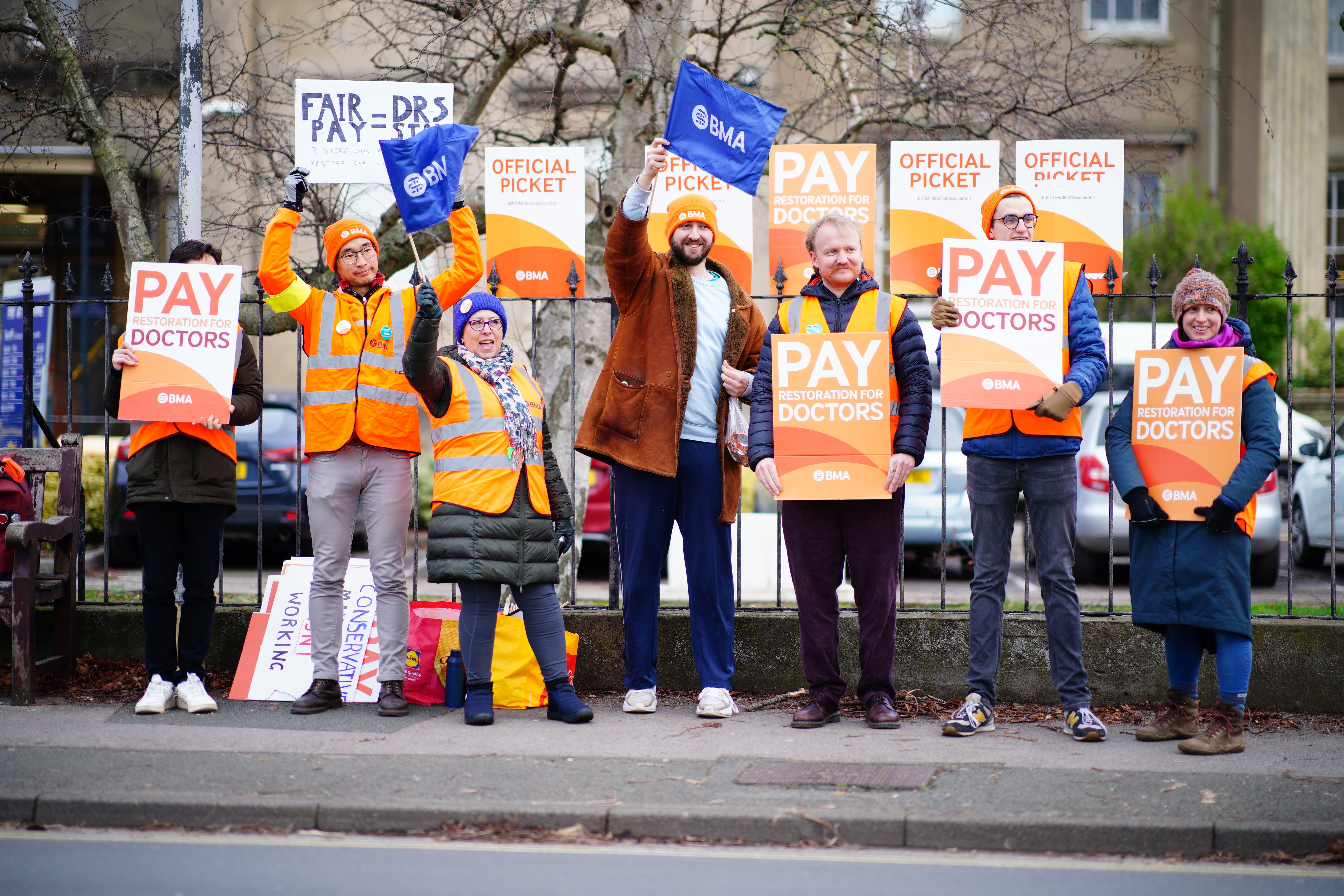Sunak tells doctors ‘we don’t have a magic money tree’
It comes as negotiations are about to restart between junior doctors and the Government.

Your support helps us to tell the story
From reproductive rights to climate change to Big Tech, The Independent is on the ground when the story is developing. Whether it's investigating the financials of Elon Musk's pro-Trump PAC or producing our latest documentary, 'The A Word', which shines a light on the American women fighting for reproductive rights, we know how important it is to parse out the facts from the messaging.
At such a critical moment in US history, we need reporters on the ground. Your donation allows us to keep sending journalists to speak to both sides of the story.
The Independent is trusted by Americans across the entire political spectrum. And unlike many other quality news outlets, we choose not to lock Americans out of our reporting and analysis with paywalls. We believe quality journalism should be available to everyone, paid for by those who can afford it.
Your support makes all the difference.The Prime Minister has told striking doctors that “we don’t have a magic money tree” as medics prepare to restart negotiations with ministers.
Junior doctors in England are to meet with the Government this week with a view to end the bitter dispute over pay.
Speaking ahead of the meeting, Rishi Sunak said “it is disappointing” that junior doctors “said no” to an offer of an “on average 10% pay rise”.
“We don’t have a magic money tree. And we have to be fair to everybody,” he said during an appearance on This Morning.
“A million other NHS workers have all actually come to a reasonable agreement with the Government. Every other bit of the public sector has come to a reasonable agreement. I think what we’ve done is fair, it’s reasonable, it’s been endorsed by an independent body.”
He added: “I really hope that people will get around the table and come to a sensible (agreement).”
When it was put to him that resolving the pay dispute would boost his chances in the election, Mr Sunak said: “My job is to do what’s right in the country in the long term.”
Talks between the Government and junior doctors broke down last year.
Medics on the BMA’s Junior Doctors Committee said that ministers had failed to put forward a credible offer before a pre-set deadline.
I think what we’ve done is fair, it’s reasonable, it’s been endorsed by an independent body. I really hope that people will get around the table and come to a sensible (agreement)
As a result, junior doctors staged two strikes, one before Christmas and another, the longest strike in NHS history, at the start of the year.
On Monday, Health Secretary Victoria Atkins announced that the British Medical Association (BMA) and health minister Andrew Stephenson are meeting this week to discuss “next steps”.
Speaking on Monday, Dr Robert Laurenson and Dr Vivek Trivedi, co-chairs of the BMA’s Junior Doctors Committee, said: “After almost three weeks of silence from the Government we could have been using to find an end to this dispute, we can confirm that following our letter requesting talks we will be meeting with health minister Andrew Stephenson later this week.
“We hope he will come with a constructive attitude toward getting a credible offer we can put to our members, as a matter of urgency, that can end this dispute once and for all.”
Meanwhile Ms Atkins said that she “genuinely” thinks that a deal can be reached with consultants in England.
Last week the consultant members of the BMA narrowly rejected the Government’s revised pay offer by 51.1%.
The deal would have seen medics get a pay rise of between 6% and 19.6%.
Consultants from the Hospital Consultants and Specialists Association (HCSA) rejected the offer earlier this month.
The NHS in England has been beset by strike action for more than a year.
Walkouts by various staff groups including doctors, nurses, paramedics and physiotherapists have led to more than 1.3 million appointments, procedures and operations being rescheduled.